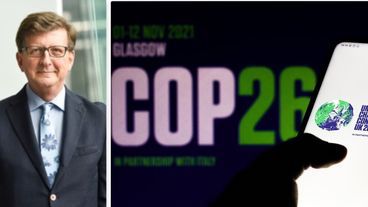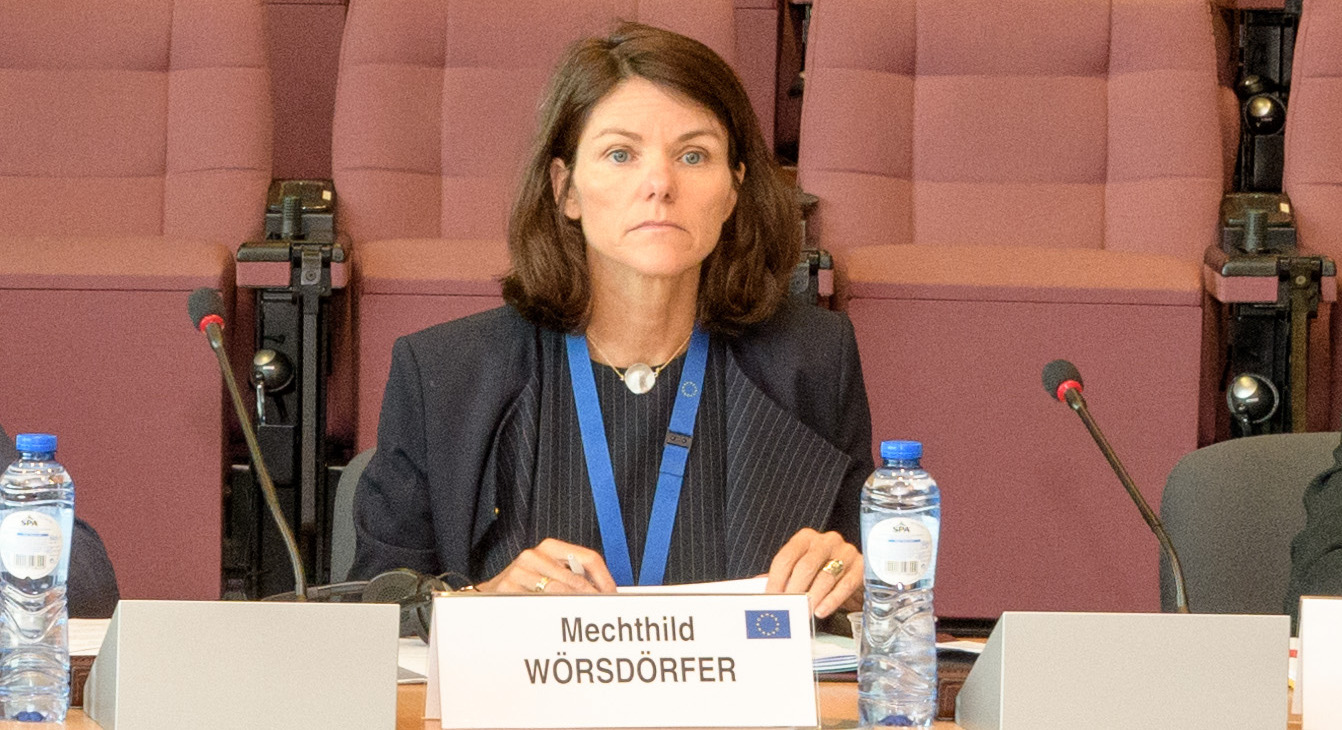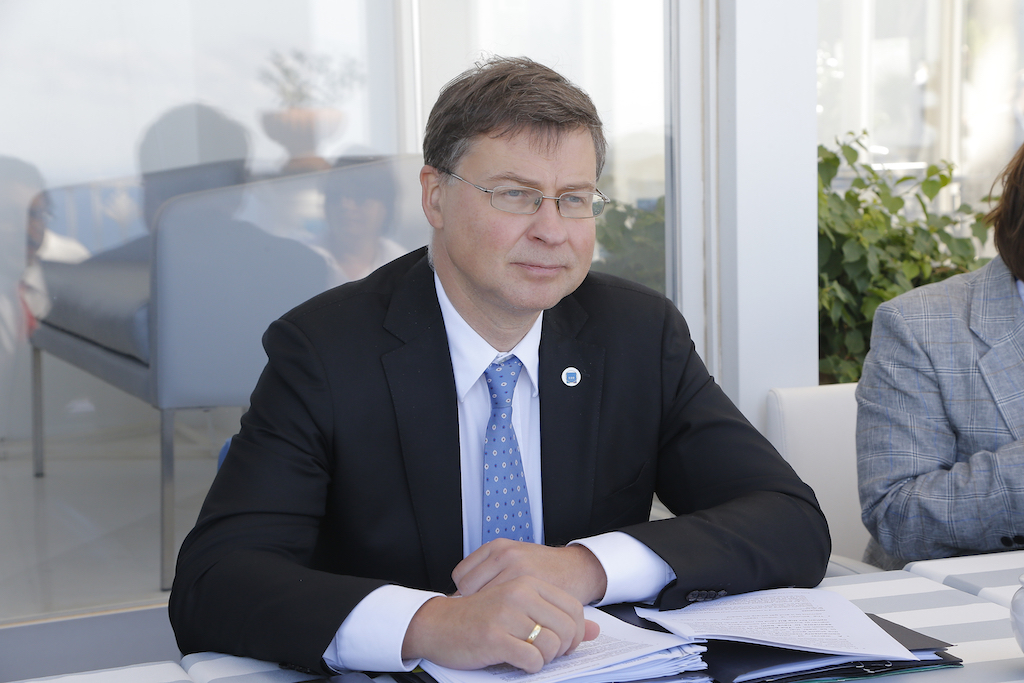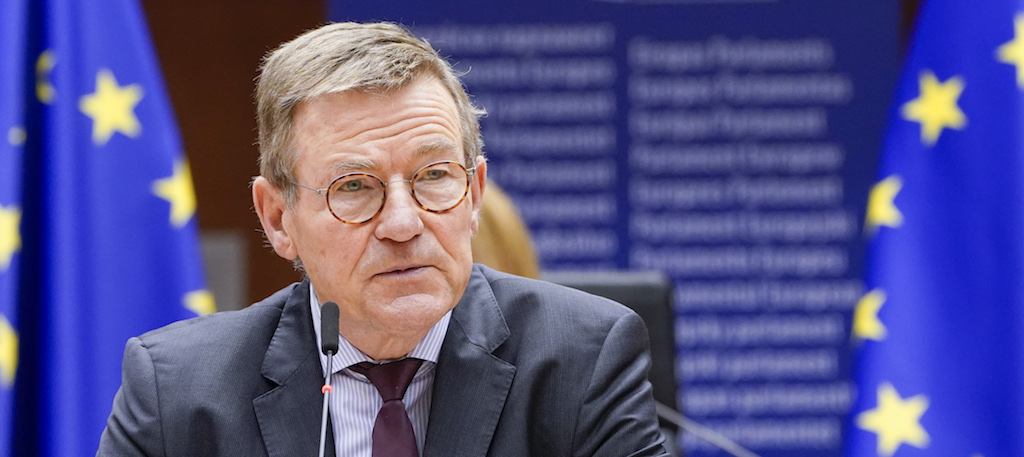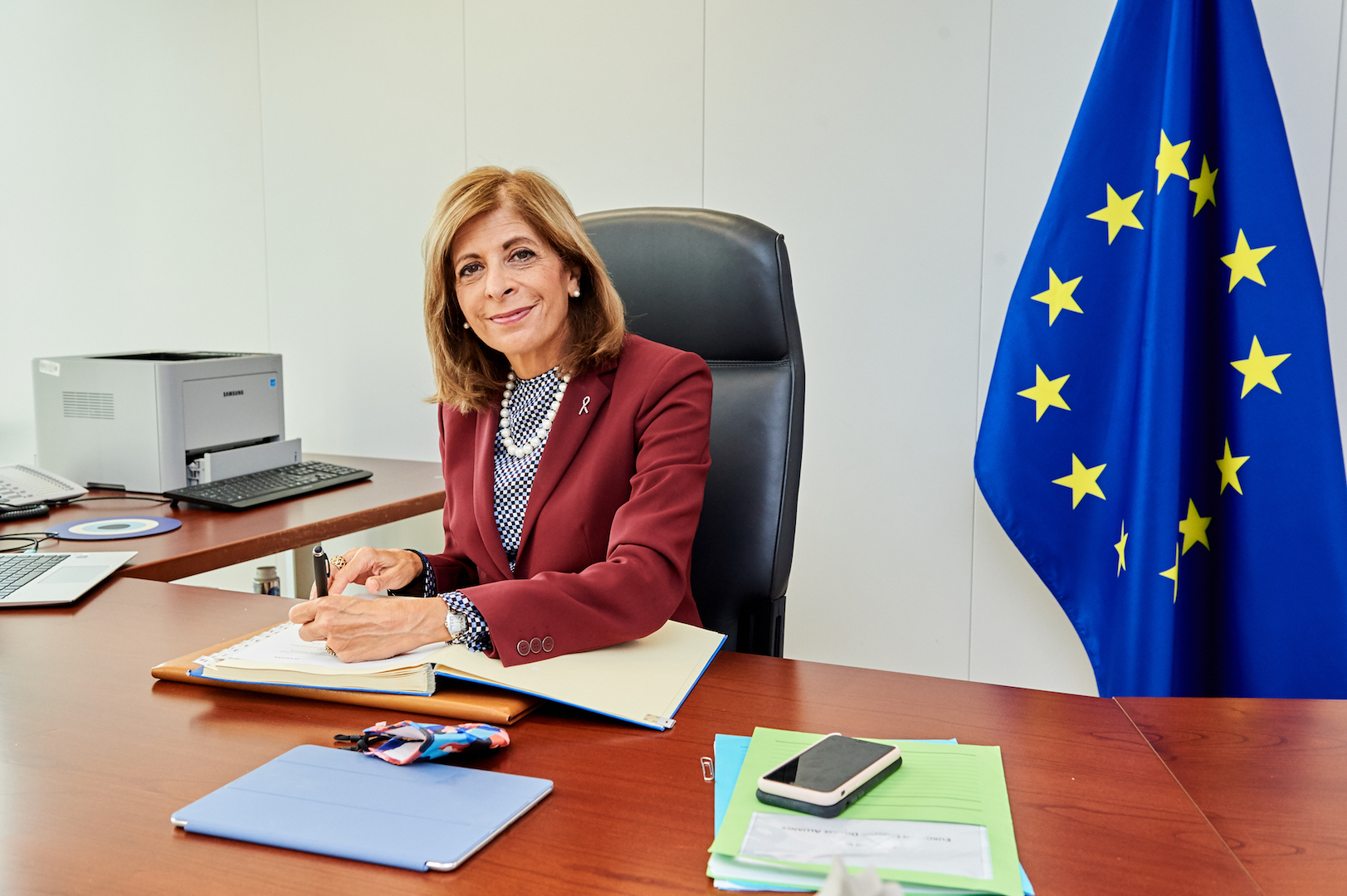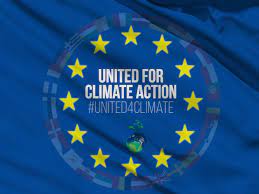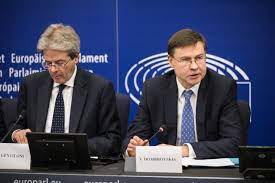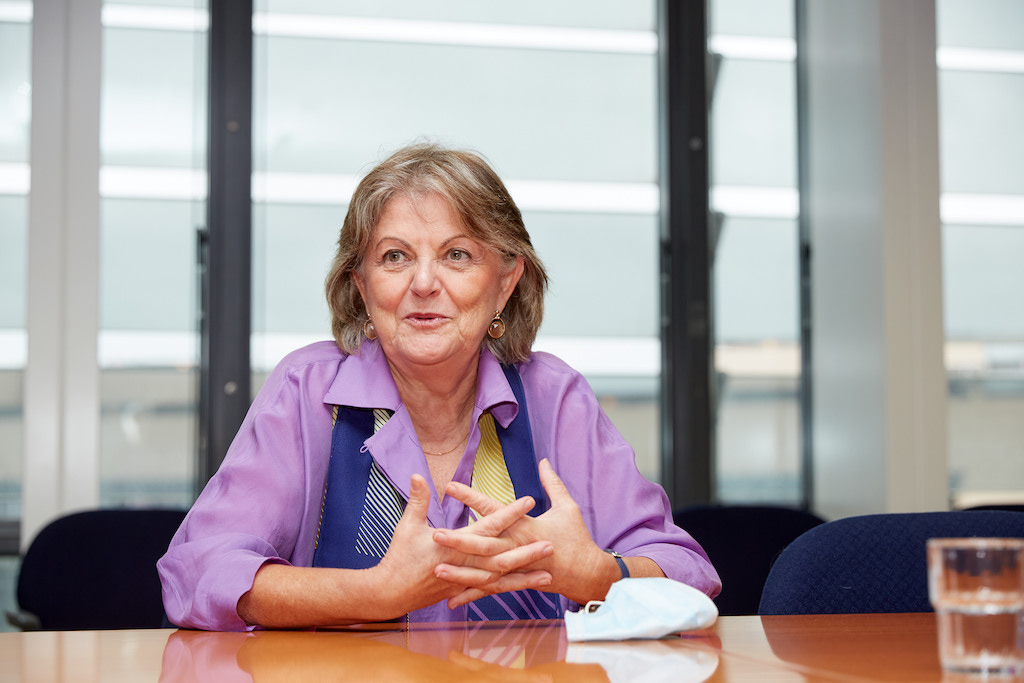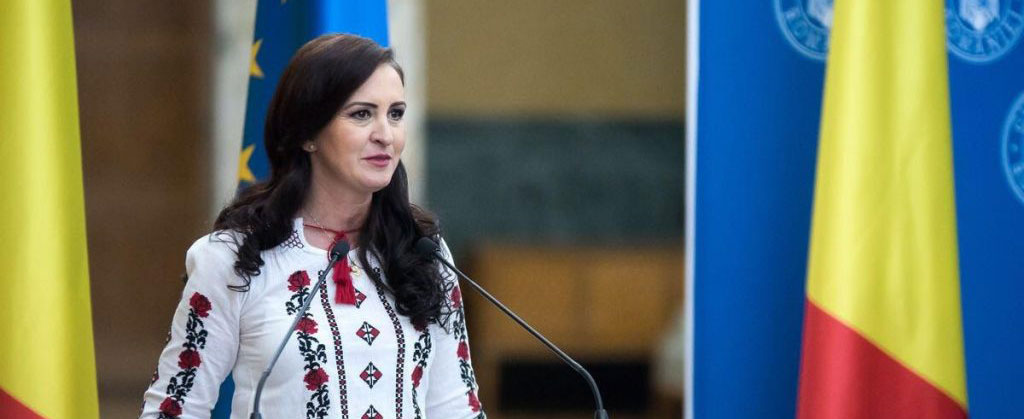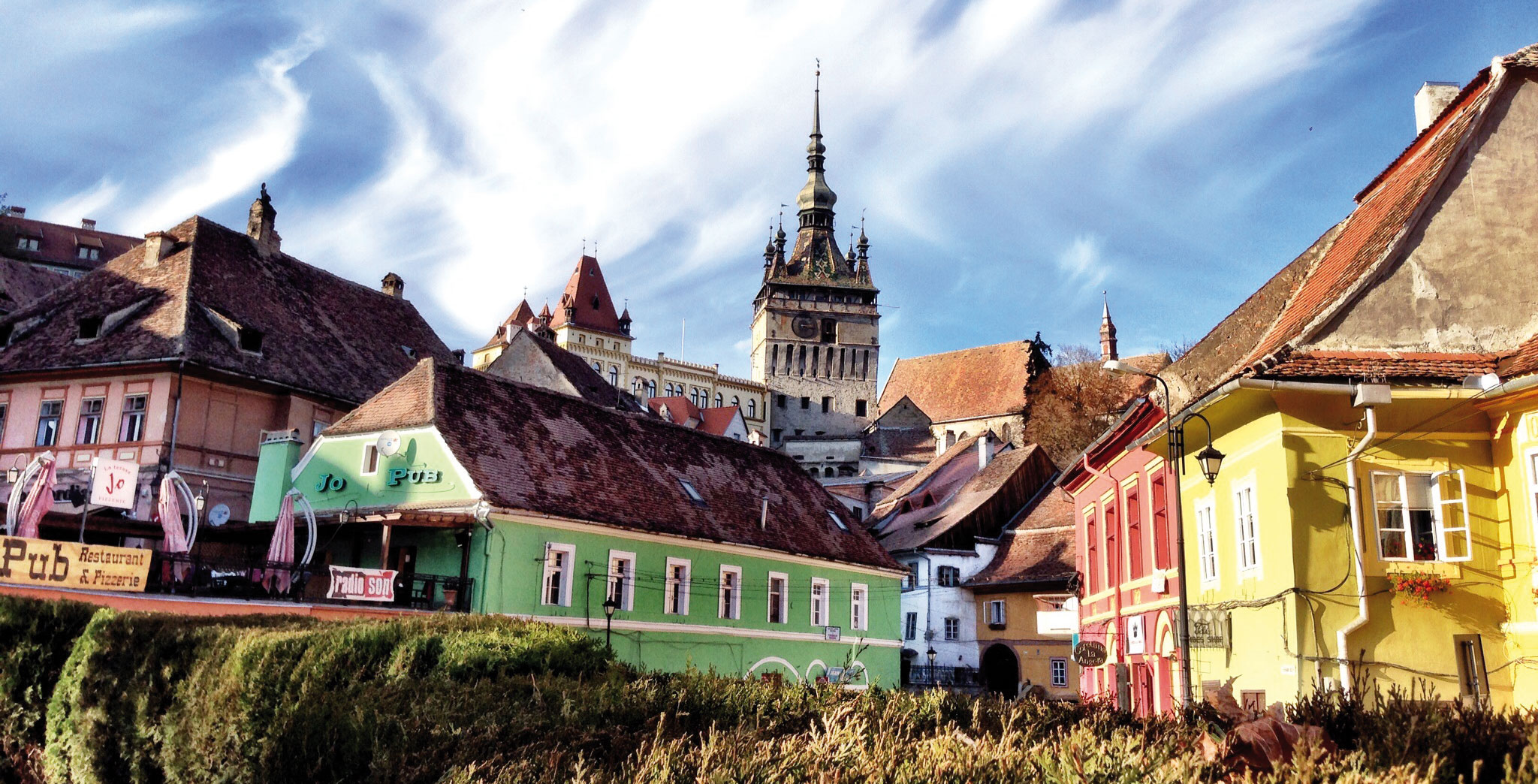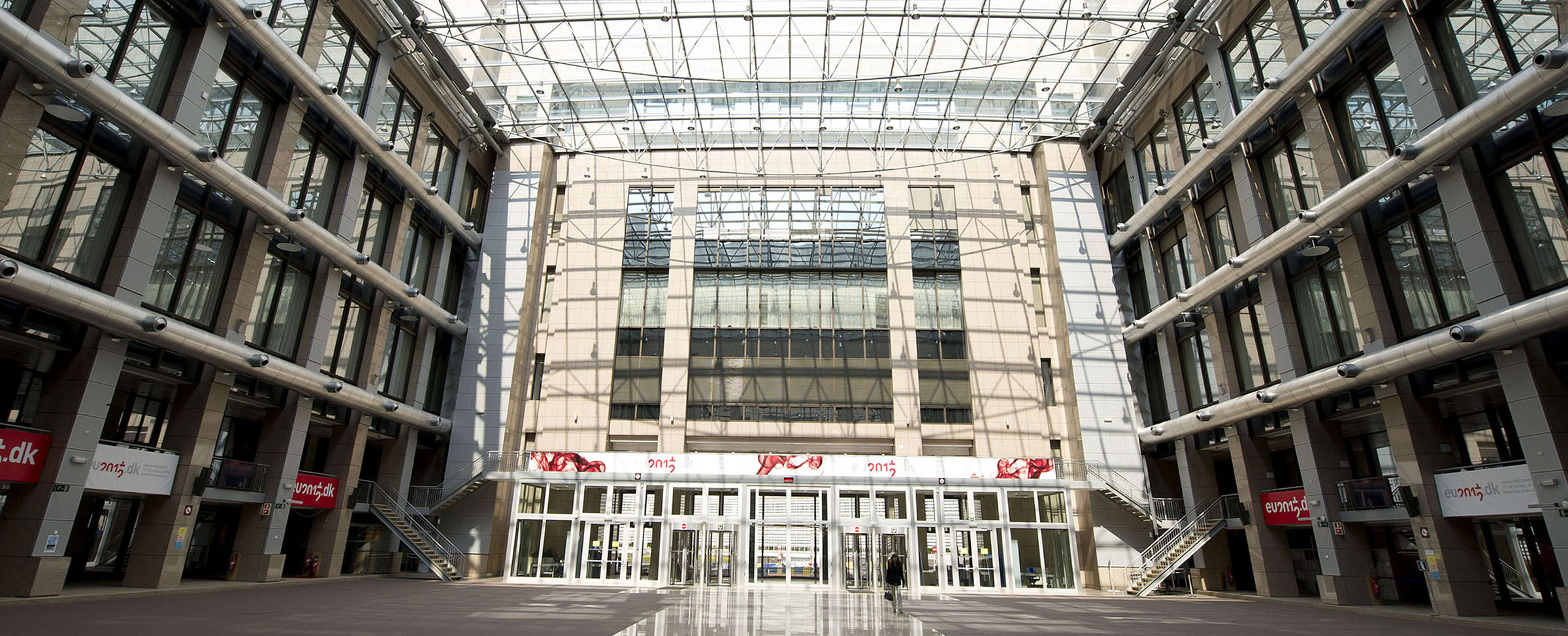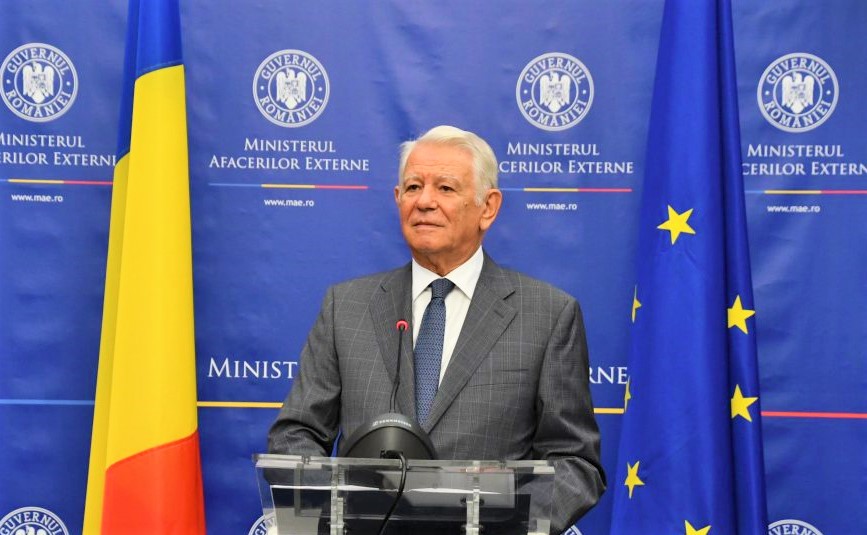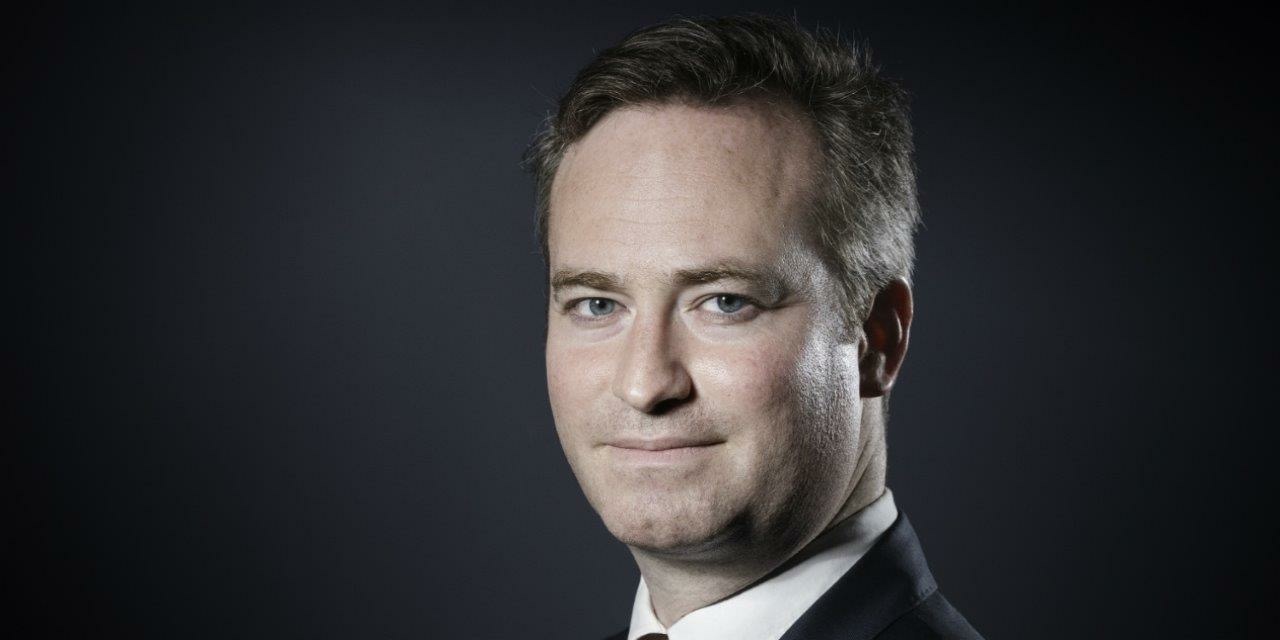Can you present the Permanent Representation of Romania to the European Union? What are your accreditations, your missions and skills?
 Like the Permanent Representations of the other Member States, our Permanent Representation concentrates its efforts, in accordance with the mandate, on supporting the EU’s legislative and decision-making processes in a way that is most favourable to European interests and generally to Romania. We are an outpost of positions promoted by the entire national administration, which is also reflected in the special composition of the permanent representation compared to other diplomatic missions – we have representatives of all the ministries who carry out diplomatic missions, sometimes very specialised. We coordinate and liaise with other Member State representations, European institutions, embassies of third countries and Romanians working in the European institutions.
Like the Permanent Representations of the other Member States, our Permanent Representation concentrates its efforts, in accordance with the mandate, on supporting the EU’s legislative and decision-making processes in a way that is most favourable to European interests and generally to Romania. We are an outpost of positions promoted by the entire national administration, which is also reflected in the special composition of the permanent representation compared to other diplomatic missions – we have representatives of all the ministries who carry out diplomatic missions, sometimes very specialised. We coordinate and liaise with other Member State representations, European institutions, embassies of third countries and Romanians working in the European institutions.
You are at the origin of the establishment of the Group of French-speaking Ambassadors of Brussels, can you explain the genesis of this group?
The Group of French-speaking Ambassadors of Brussels was created in 2009, with the help of the Permanent Representation of the OIF to the EU. This platform, which today brings together 104 French-speaking ambassadors, represents a particular consultation body, linked to the themes of the European agenda and the ACP group of countries. The Group contributes equally to the promotion of the actions carried out by the OIF, particularly as regards the training of civil servants. I had the great honour of being elected chair of this group upon my arrival in Brussels in 2015. My aim was to continue the dialogue between the members of the Group on the topics of European and French news, to connect circles of political influence in Brussels and to strengthen the presence of the French language and respect for multilingualism in the European institutions. We must continue our joint efforts to favour French as the main language in the framework of the European institutions, in all its dimensions, geopolitical, cultural, educational, economic and scientific.
The Diplomacy of La Francophonie is not just about the use of the French language. What are your areas of interest and intervention today?
La Francophonie is a natural choice for Romania, as is the idea of bringing together French-speaking friends in Brussels in this group. To better regulate this, I would like to remind you that in 1991, Romania obtained observer status and, since 1993, has been a full member of La Francophonie. The membership of the OIF, doubled by its Francophone and Francophile tradition, has enabled Romania to strengthen the global dimension of its international cooperation, in the conditions of the transcontinental representation of the Francophonie. In 2007, Romania was named La Francophonie’s flagship state for the region of Central and Eastern Europe by the Secretary-General of La Francophonie.
Indeed, La Francophonie’s diplomacy is much broader and is based on the values and objectives common to the Francophone community. Moreover, La Francophonie, built on the foundation of French, as a shared language, touches the vital areas that impact and interest the 84 member countries, associates or observers of La Francophonie.
I would like to focus on three examples that show Romania’s ambition to promote the idea of change in the French-speaking world: gender equality, research and training of those who are called to put in place public policies for the member countries of the OIF.
 The Conference of Women of La Francophonie Romania firmly believes that equality between women and men is an important factor in respect for human rights, peace and development.
The Conference of Women of La Francophonie Romania firmly believes that equality between women and men is an important factor in respect for human rights, peace and development.
On 1 and 2 November 2017, Romania, in cooperation with the International Organization of la Francophonie, organised the Conference of Women of La Francophonie in Bucharest, under the patronage of the President of Romania and in the presence of the Secretary-General Francophonie.
The conference brought together stakeholders for gender equality, reaffirmed the important contribution of women to economic development, and mobilised action by OIF Member States and governments on gender equality and genres. The conference adopted the Bucharest Call and launched the first French-speaking network of women entrepreneurs. It is hoped that this founding document, which will form the basis of the OIF Strategy for Gender Equality, will be approved this year.
The Doctoral and Postdoctoral Fellowship Program “Eugen Ionescu”
 Romania continued to strengthen the links between French-speaking countries in the area of education for sustainable development in the French-speaking world, through the Eugen Ionescu Doctoral Fellowships and Postdoctoral Research Program.
Romania continued to strengthen the links between French-speaking countries in the area of education for sustainable development in the French-speaking world, through the Eugen Ionescu Doctoral Fellowships and Postdoctoral Research Program.
The program was launched in 2006 at the XIth Francophonie Summit, held in Bucharest, for the first time in a country in Central and Eastern Europe.
This initiative represents the commitment of Romania, as a member country of the International Organization of La Francophonie, but also as a member of the European Union, to contribute to the rise of higher education for sustainable development in the French-speaking world.
University Francophonie is an essential part of La Francophonie as a whole. By using the specific instruments of the Organization and its own initiatives, Romania is firmly committed to promoting Francophone values, not only at the national level but also across the Francophone space.
So far, more than 700 PhD students and researchers from some 30 member and observer countries of OIF, Africa, Asia, Latin America and Europe have already benefited the “Eugen Ionescu” Scholarship Scheme in Romanian higher education institutions, recognized for their excellence in the most diverse fields.
National Francophone Initiative
Since 2004, Romania has contributed, as part of the Francophone National Initiative, to the training in French of diplomats and officials of the Romanian public administration working on European issues. So far, more than 6,000 people have benefited from these trainings.
For the 2015-2018 period, the Romanian IFN was held to train staff for the Romanian presidency of the Council of the European Union in 2019.
Romania has been with the European Union since 10 years now, as part of your responsibilities in Romania’s Permanent Representation to the European Union, what is your assessment?
More than 10 years after accession, I can say with conviction that European integration is felt at all levels of society who have succeeded over time. Member States means a return to the fold. Romania finds its destiny as part of the EU by regaining its full freedom, which was recovered in December 1989 and fully restored on May 1, 2007. Romanians brought enthusiasm to Europe and Europe gave the Romanians hope for a future in democracy and freedom.
By joining this important club, we have become part of the decision-making process and we implement the decisions made jointly. The benefits of our membership of the EU are mainly related to access to the EU’s internal market, free movement, economic growth, cohesion and access to finance. We have also succeeded in developing projects that have a positive impact on the region, such as the Danube Strategy, but also the development of the world’s most powerful laser at the research institute in Turnu-Măgurele. We are active in the neighbourhood and among the permanent supporters of the European perspective of the Republic of Moldova and enlargement with the countries of the Western Balkans. At the same time, Romania is actively contributing to efforts to find solutions to the challenges that affect the Union as a whole, such as migration, Brexit, terrorism, climate change, etc.
At the level of Romania’s Permanent Representation to the EU, the experience acquired during these 10, soon 11 years also gives us the certainty in terms of knowledge and deepening of the inter-institutional framework, the “labyrinth of procedures Or the best use of the existing leverage in the Treaties and the European legal framework. Our representation is also an interface with the European institutions here in Brussels, and over these years, this relationship has matured and deepened, with the feeling of belonging to an extended and open institutional family.
What are your 2018 challenges? and can you make a note on the Europeans of 2019?
The biggest challenge for Romania this year is the preparation of the Presidency of the Council of the European Union. Romania will take over, for the first time since the integration in 2007, the EU presidency from 1 January 2019. We are proud and ready to show the success of enlargement to the East. On 9 May 2019, the Romanian Presidency of the Council of the European Union will host the Summit of Heads of State and Government in Sibiu. The Road-to-Sibiu is not only about deepening European integration on the basis of the Leaders’ Agenda, but also paving the way for 2020. Even without the UK, the Union will seek to remain united, solution-oriented and strategically reflective.
The Presidency of the EU Council, which Romania will hold on 1 January 2019, represents a turning point for our country. For six months, we will focus on solutions, making decisions that are relevant to our citizens. The Presidency is about responsibility and the common interest. It’s about our citizens and our values. It is also a question of unity, solidarity and a common future.
The 2019 European elections will also be defining for our ambitions. It is therefore important to communicate continuously with citizens, to explain simply and directly the benefits of the Union for everyday life. We need their support, especially from young people, so that the European project can go further.





